The much-anticipated Korean-Israeli Educational Synergies Forum took place in Jerusalem on Friday, June 13, 2024, marking a significant milestone in educational collaboration between two incredibly innovative and tech-driven nations.
The event was honored by the presence of the Korean Ambassador, His Excellency Mr. Kim Jin-Han, and his team, alongside key figures from both countries who are the driving force behind the establishment of this groundbreaking forum. The gathering underscored the importance of educational collaboration as a bridge for deeper cultural and strategic ties between the two nations.
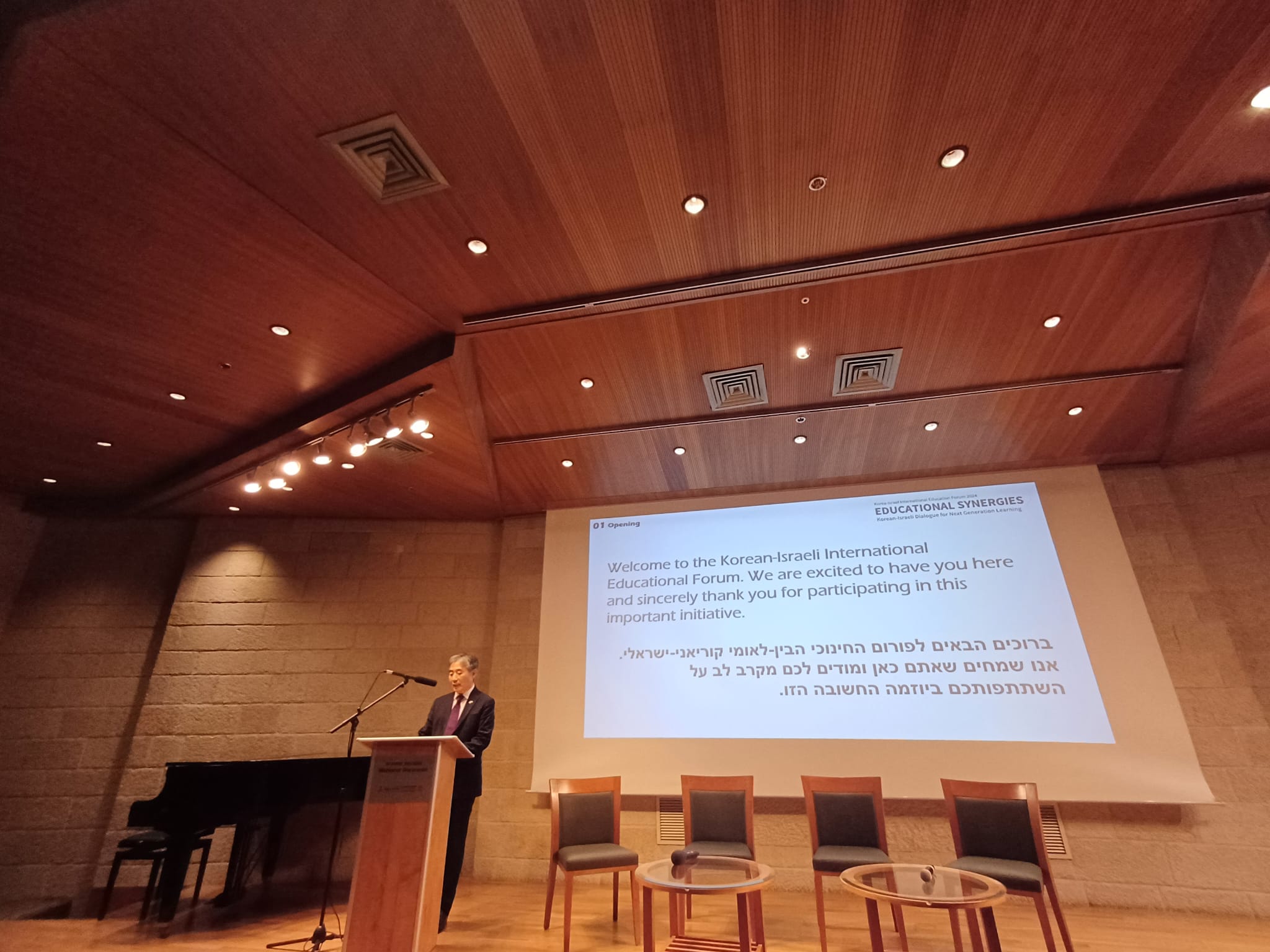
Korean Ambassador, His Excellency Mr. Kim Jin-Han Opening the Forum
The forum was initiated and organized by Suhyang Kim, a pioneer in educational innovation and international collaborations representing South Korea, and Mary Kim, principal of the Israel-Korea School in Jerusalem. Their vision created a platform to explore shared values, discuss mutual challenges, and envision the future of education together.
Suhyang Kim, the key figure who brought this forum to life, is the founder and CEO of nest4Next, with over 14 years of experience in transforming educational landscapes. She collaborates with governments, educators, and global partners to bridge academic vision with practical implementation. Her expertise spans developing new educational models and contributing to the OECD’s Future of Education and Skills 2030 project. As a PhD candidate at SOAS, University of London, her research focuses on designing adaptive educational frameworks for Korean reunification. Suhyang’s interdisciplinary background in education, journalism, and communication positions her uniquely at the intersection of innovation and future skills development.
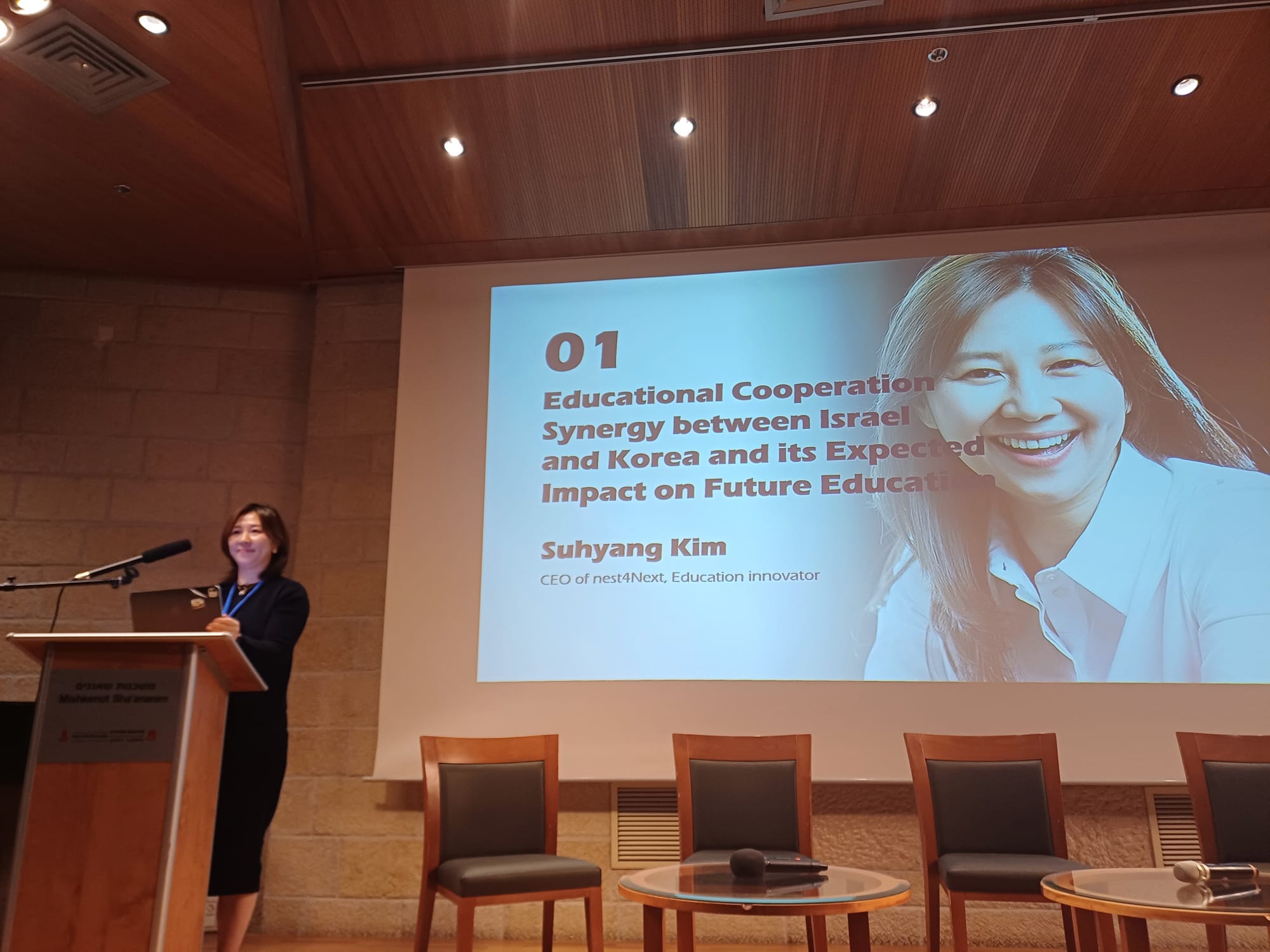
Suhyang Kim, the key figure who brought this forum to life, the founder and CEO of nest4Next
The Story of Korea in the Israeli Education System
Dr. Ira Lyan from the Hebrew University shared a captivating historical perspective on how Korea is portrayed in Israeli educational literature. Early Western and Israeli studies of Korea often tied it to Japan and China, with Korea referred to as “Little China” or “Little Japan” during its colonial past. However, Korea’s extraordinary transformation, known as the “Miracle on the Han River,” from one of the world’s poorest nations to one of its most prosperous, is now a focal point of study and admiration.
Interest in Korean culture has surged globally through the rise of K-pop and other cultural phenomena. This exposure often becomes the first step for young generations to delve deeper into Korea’s language, history, and society. As discussed, popular culture is more than entertainment—it is a gateway to understanding Korea’s rich past, dynamic present, and technological future.

Dr. Ira Lyan from the Hebrew University
Representation of Korea in Israeli Education
Leah Rabinovitch, a graduate student in Asian Studies at the Hebrew University of Jerusalem, explored how Korea is represented in Israeli curricula. Her research highlighted that Korean history and culture are mentioned only seven times in textbooks, primarily in the context of foreign powers or North-South Korea relations. In contrast, Korea’s modern political systems are used in citizenship studies as case studies, owing to their parallels with Israel’s geopolitical situation.
Interactive Learning and Cross-Cultural Exchange
Shelly Sander shared how pilot programs are transforming the way students learn about Korea and Japan in Israeli classrooms. What often begins as curiosity about K-pop evolves into deeper explorations of history, language, and exploration of North-South Korea geopolitical situation. These interactive and immersive programs go beyond textbooks, offering students a richer understanding of Korean culture.
Why Korea and Israel? A Natural Partnership
Dr. Ashley Pak shared her personal journey of discovering Israel during a visit to the Negev Desert, which inspired her exploration of the deep parallels between the two nations:
- Small nations in challenging geopolitical environments.
- Revival of ancient languages—Korea’s Hangul and Israel’s Hebrew were both revived to strengthen national identity.
- Histories of mutual support and collaboration—From humanitarian efforts to scientific partnerships, Korea and Israel share a legacy of cooperation.
Both nations are defined by resilience, innovation, and responsibility, with a shared belief that success is embedded in their national identities. As David Ben-Gurion famously stated, “Our past is not behind us—it’s within us.”
Educational Gaps and Opportunities
Dr. Sharon Greenberg, ORT Israel Deputy General Manager & Head of Administration for R&D and Training, addressed the importance of balancing technology and values in education. While Korea’s education system is driven by academic excellence and high test scores, it sometimes comes at the cost of students’ mental well-being. ORT Israel’s educational model emphasizes not only academic results but also social-emotional learning (SEL), ensuring a holistic approach to student development.
Sharon also highlighted ORT’s social programs, which involve students in impactful community projects. These initiatives strengthen students’ connection to Israeli society and foster character development.
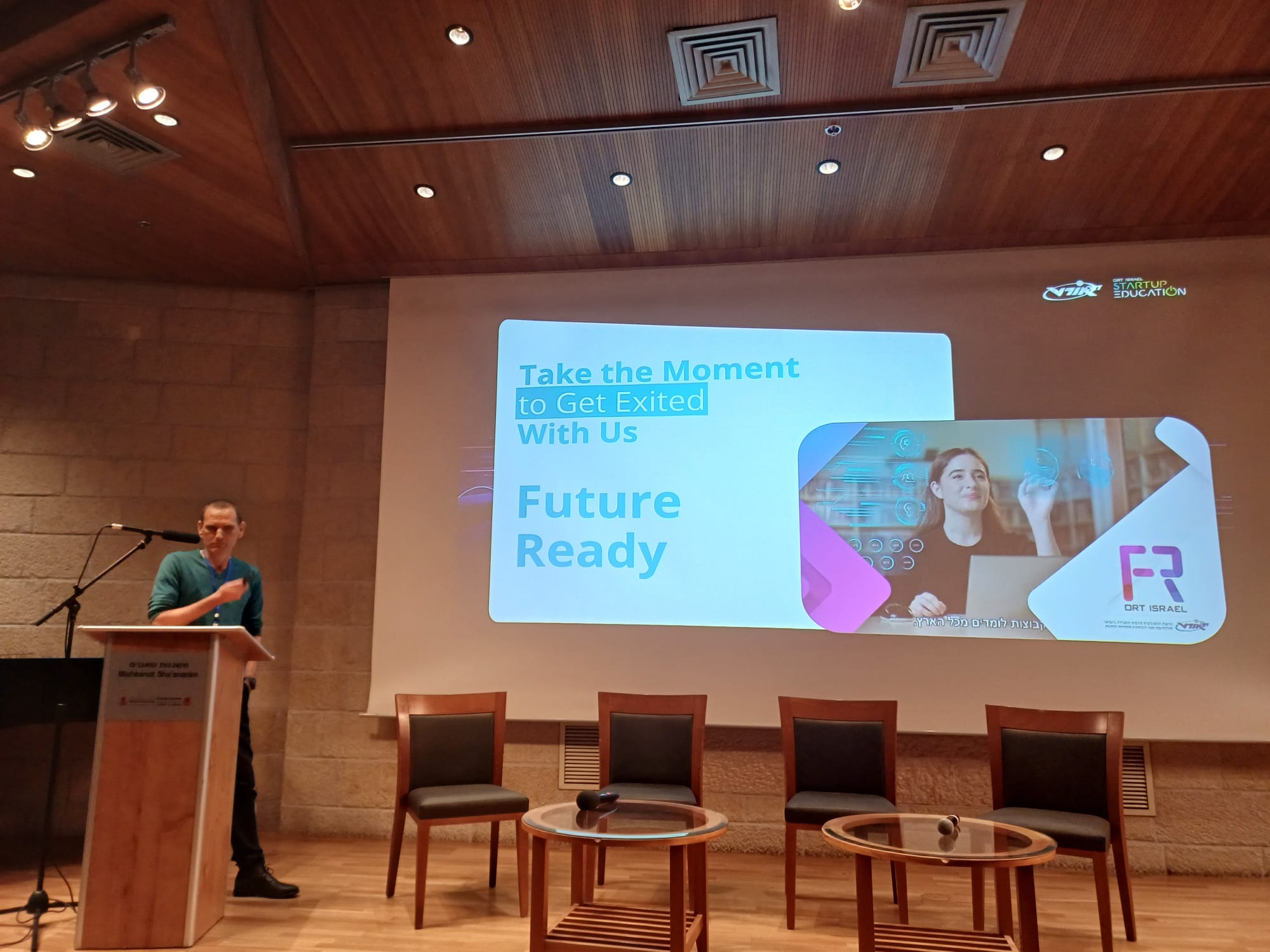
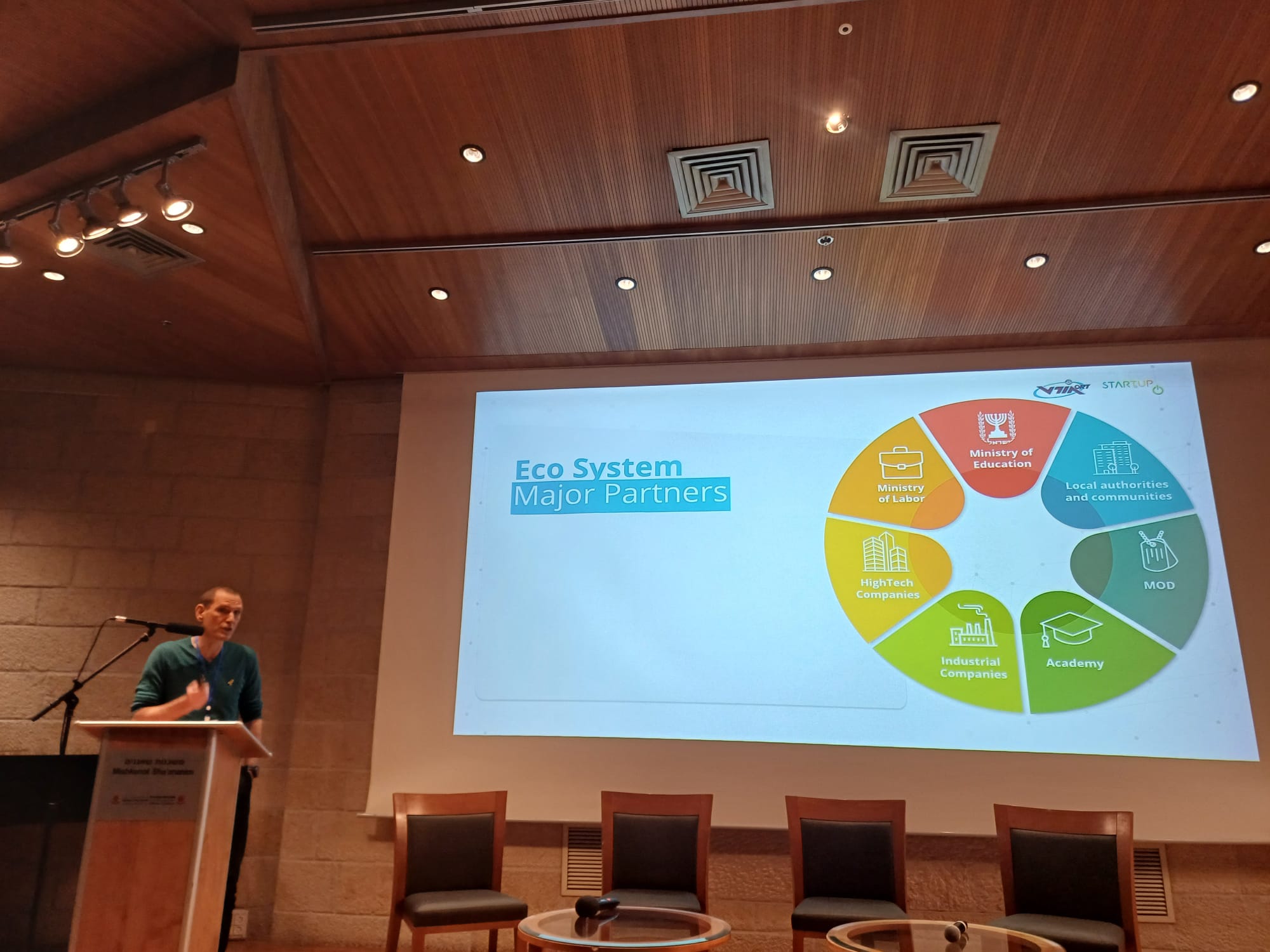
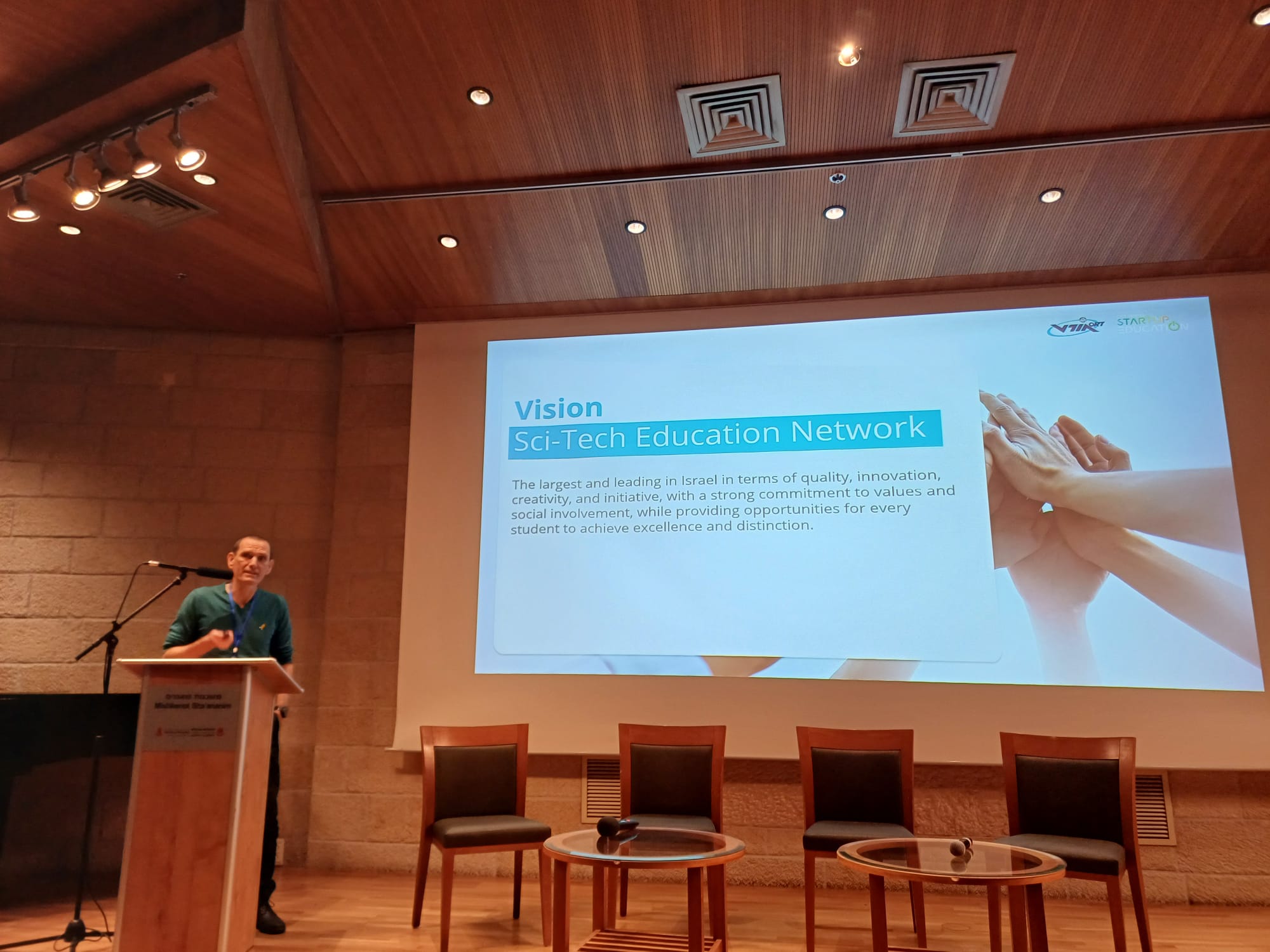
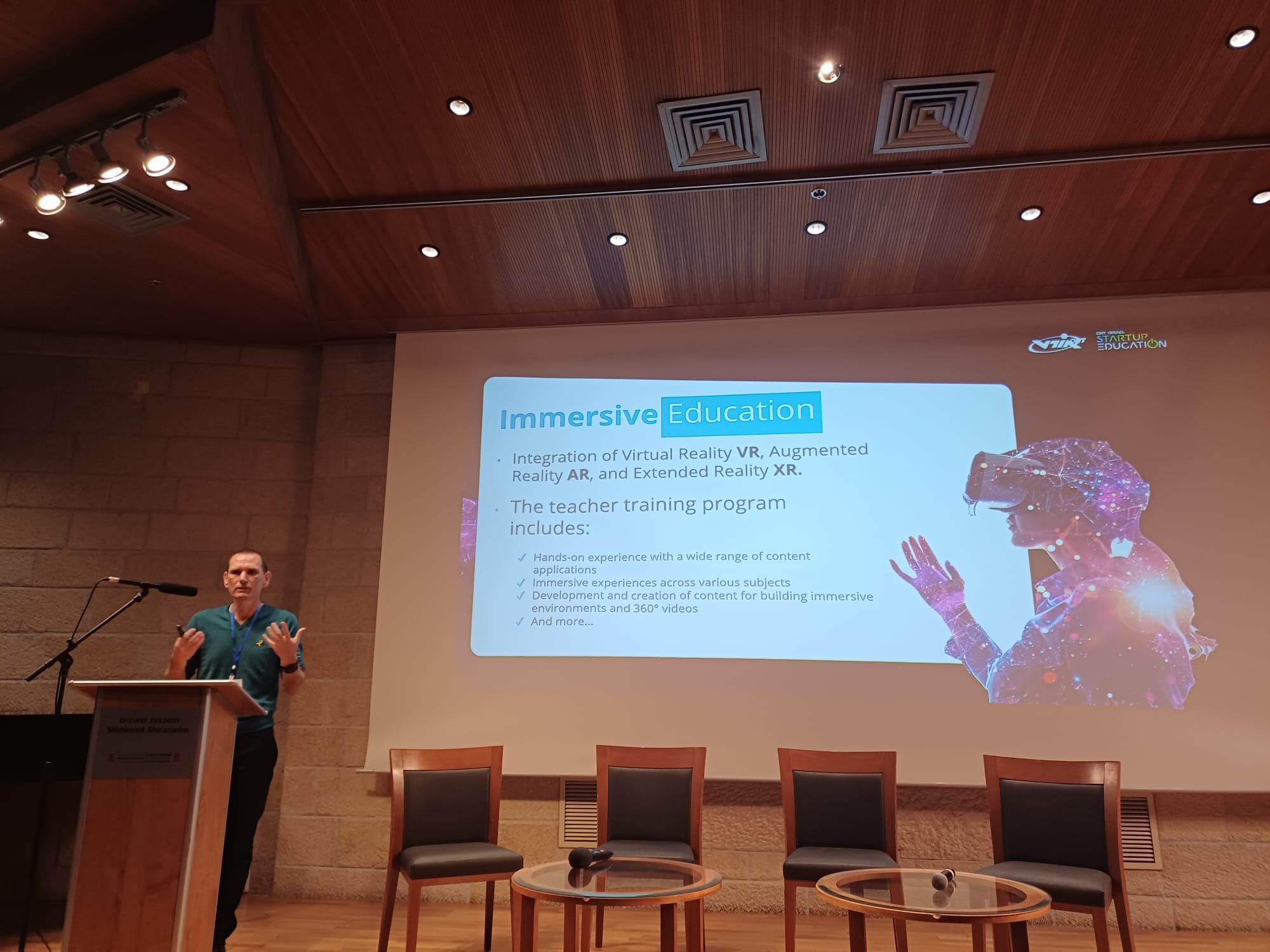
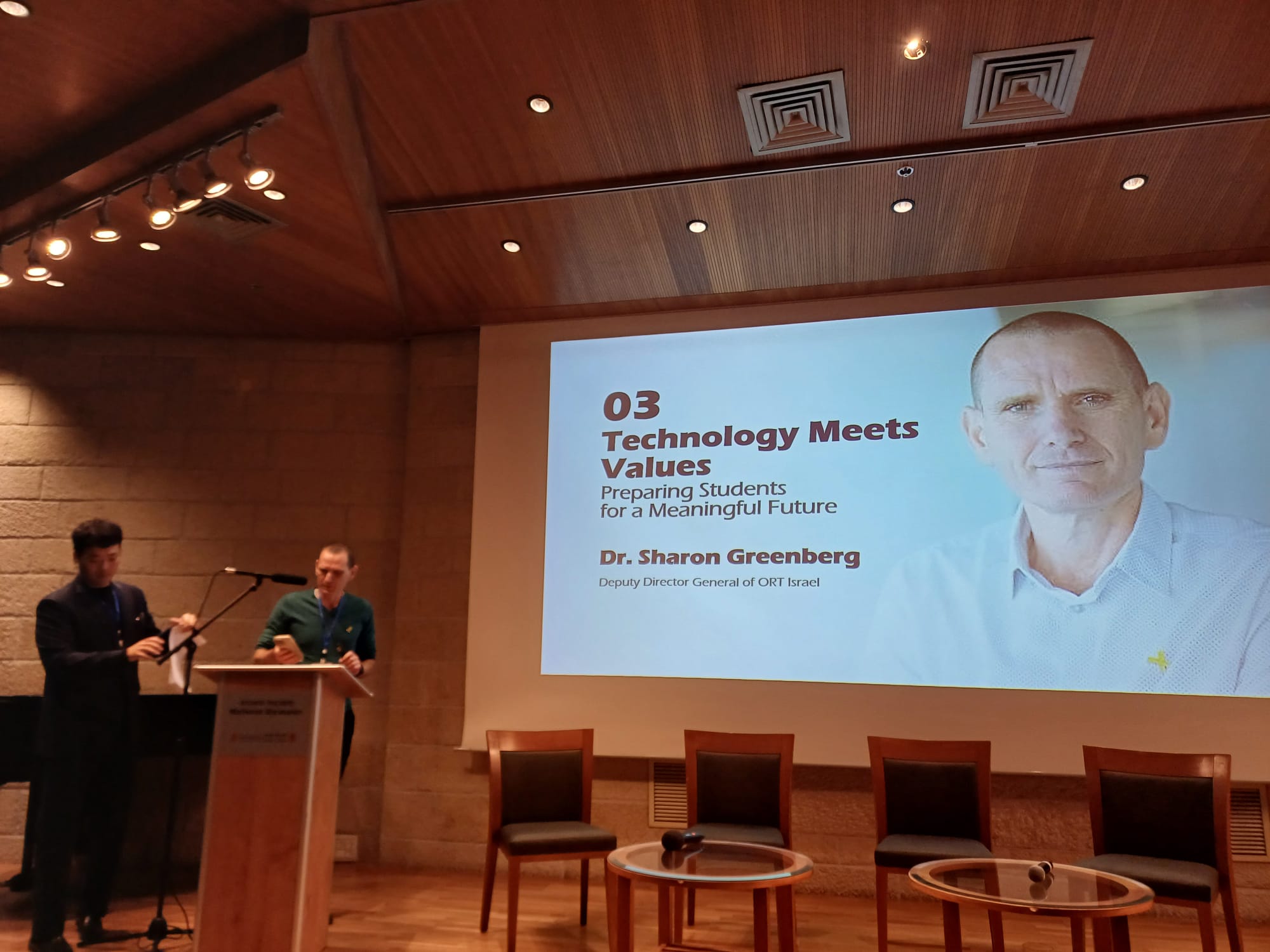
The Ulpan Model: A Pathway for Language Learning
Ezra Kim discussed Israel’s unique “Ulpan” model of language education, a method that teaches a new language as if it were a mother tongue. In this immersive approach, no secondary language (like English) is used to facilitate learning—a principle Ezra believes to be the most correct and efficient way to achieve fluency. This method aligns with Korea’s language-learning philosophy and offers an exciting opportunity for educational collaboration.
Visions for the Future: Education in 2074
Suhyang Kim posed a provocative question to attendees: “What will a classroom look like in 2074, and what core elements will remain unchanged?” While AI and dynamic digital content will revolutionize education, one element remains irreplaceable—human connection. The relationships between teachers and students, as well as peer-to-peer connections, will always be essential for personal growth and emotional well-being.
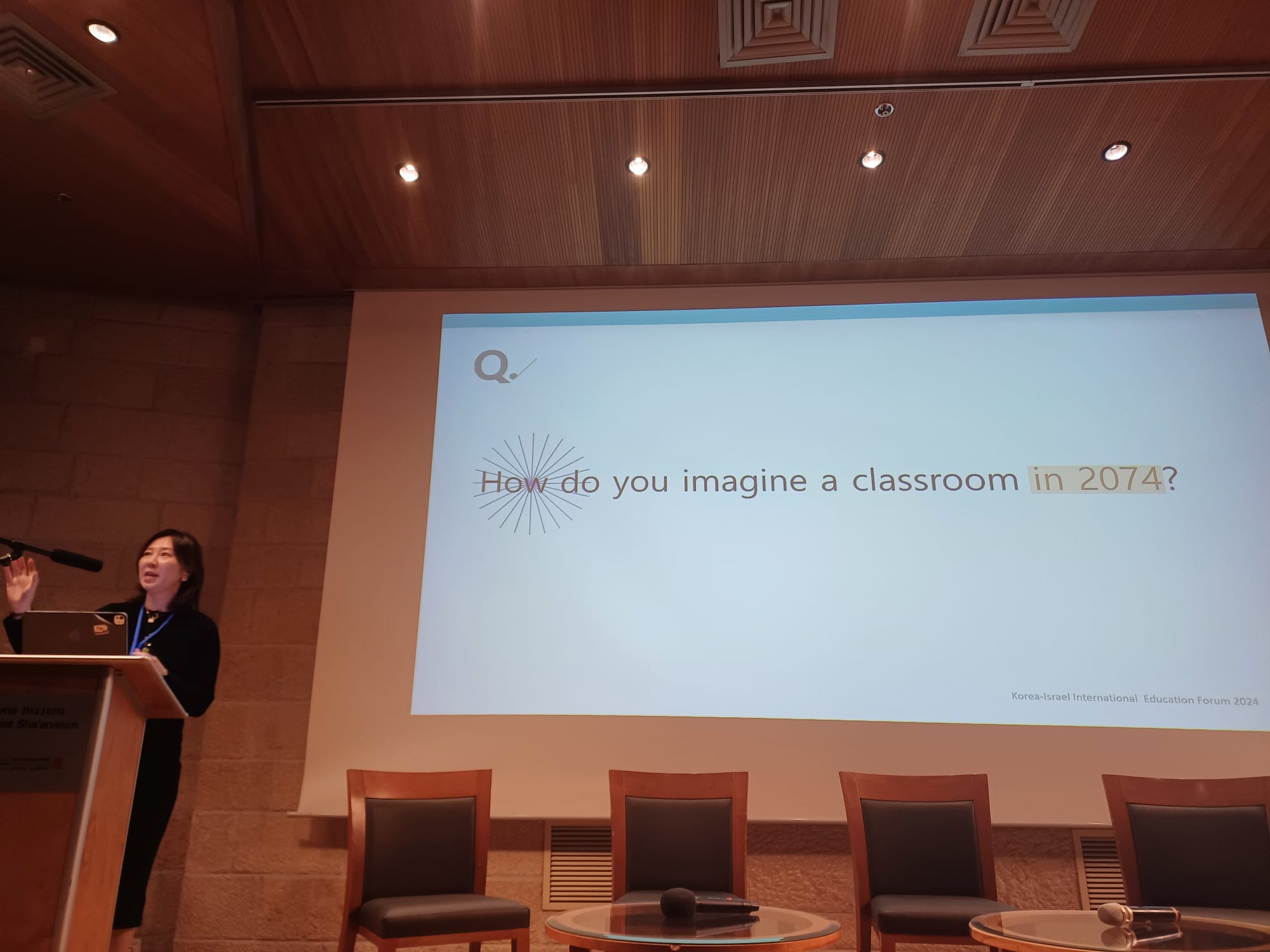
Suhyang Kim posed a provocative question to attendees: “What will a classroom look like in 2074, and what core elements will remain unchanged?”
Looking Forward: A Collaborative Future
As the forum drew to a close, participants left with a sense of optimism and purpose. Korea’s story is one of resilience, growth, and transformation—a narrative that deeply resonates with Israel’s own journey. Together, these two nations are redefining what education can achieve in an era of rapid technological advancement.
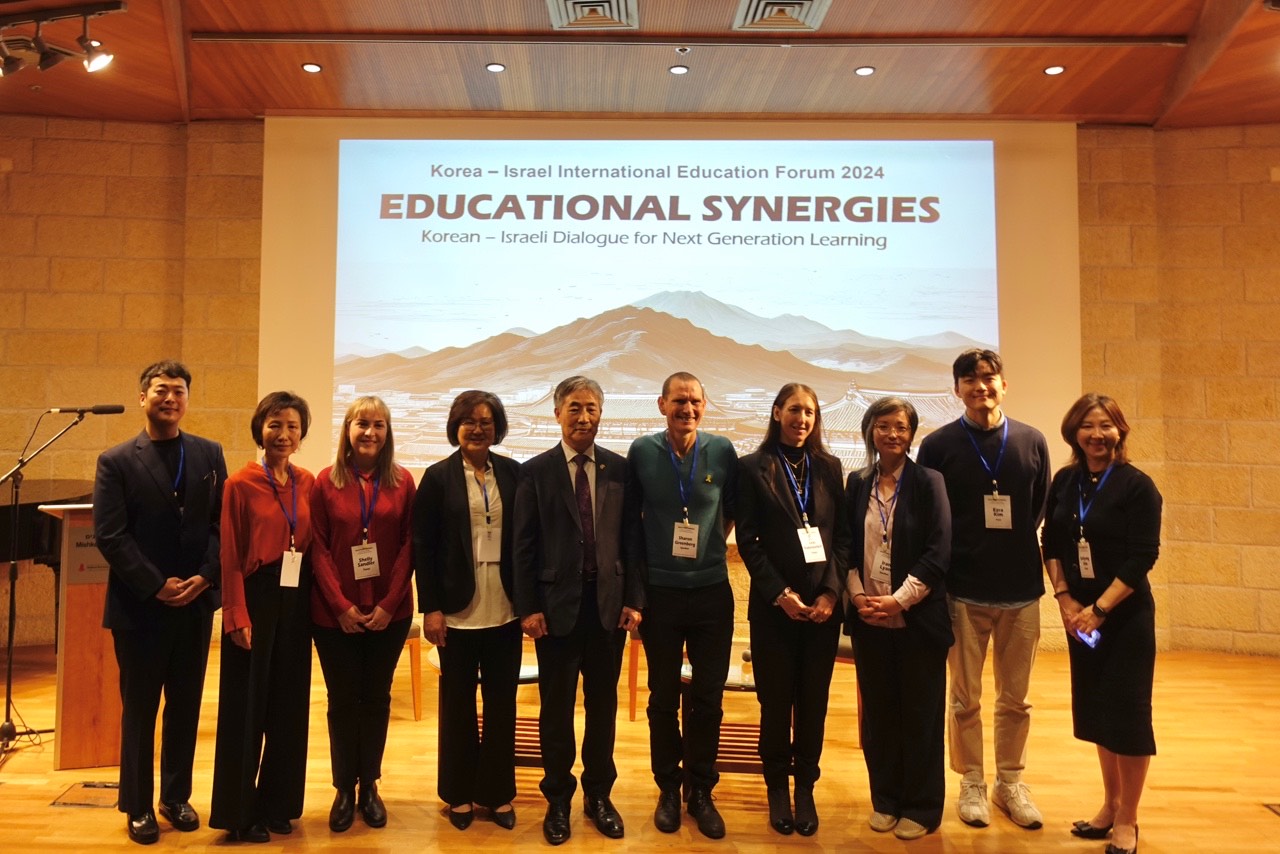
Ambassador and forum Keynote Speakers
Key Takeaways
- Education shapes the future: All future social economical “miracles” begin with education.
- Human connection remains vital: Technology may change the medium of learning, but relationships are irreplaceable.
- Korea and Israel’s shared DNA: Resilience, national identity, and the pursuit of high achievements are central to both nations.
- The importance of SEL: Education must balance academic results with social-emotional learning to nurture well-rounded individuals.
With the foundation now laid for deeper collaboration, ORT Israel’s role in this transformative movement is just beginning. The synergy between Israel and Korea offers an unparalleled opportunity to co-create educational models that embrace both technology and humanity, preparing the next generation to thrive in a rapidly changing world.
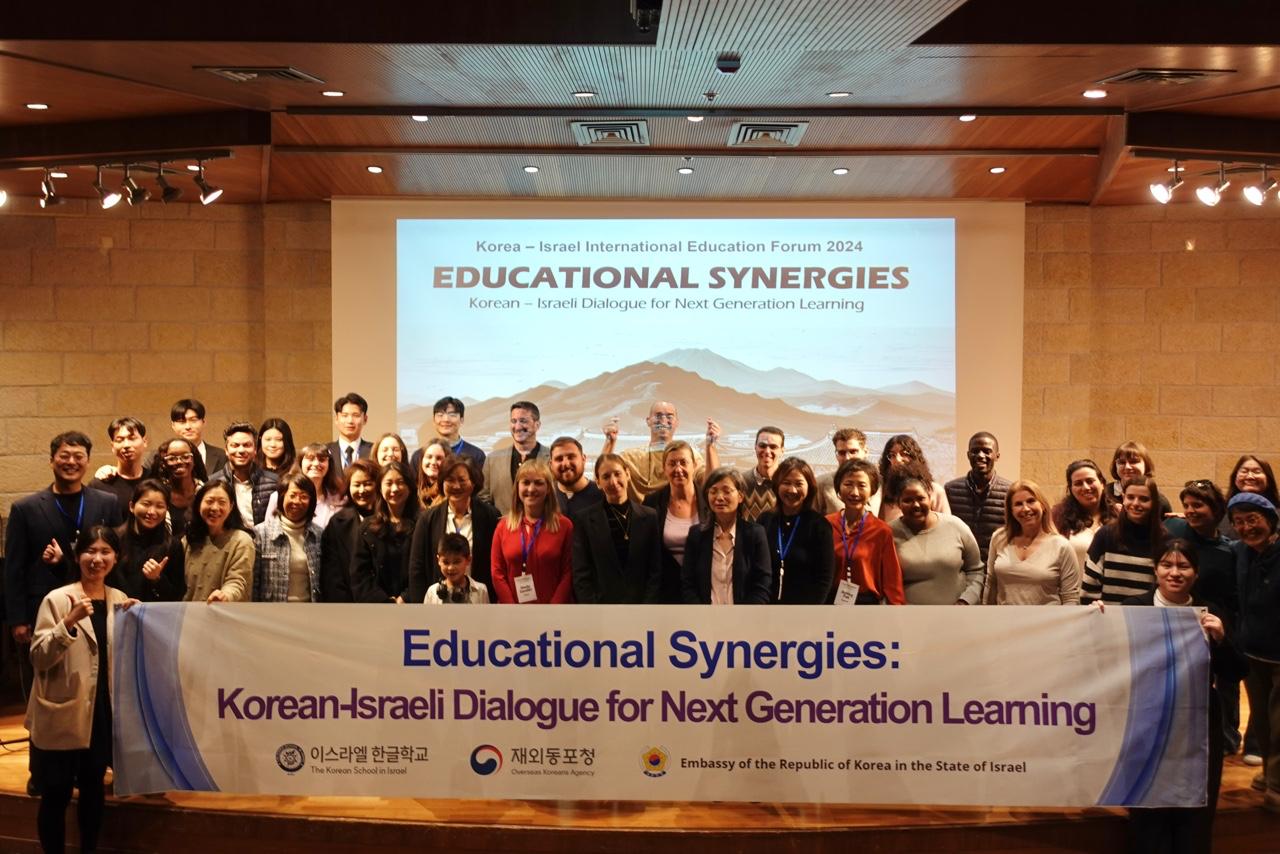
Forum Closure Photo